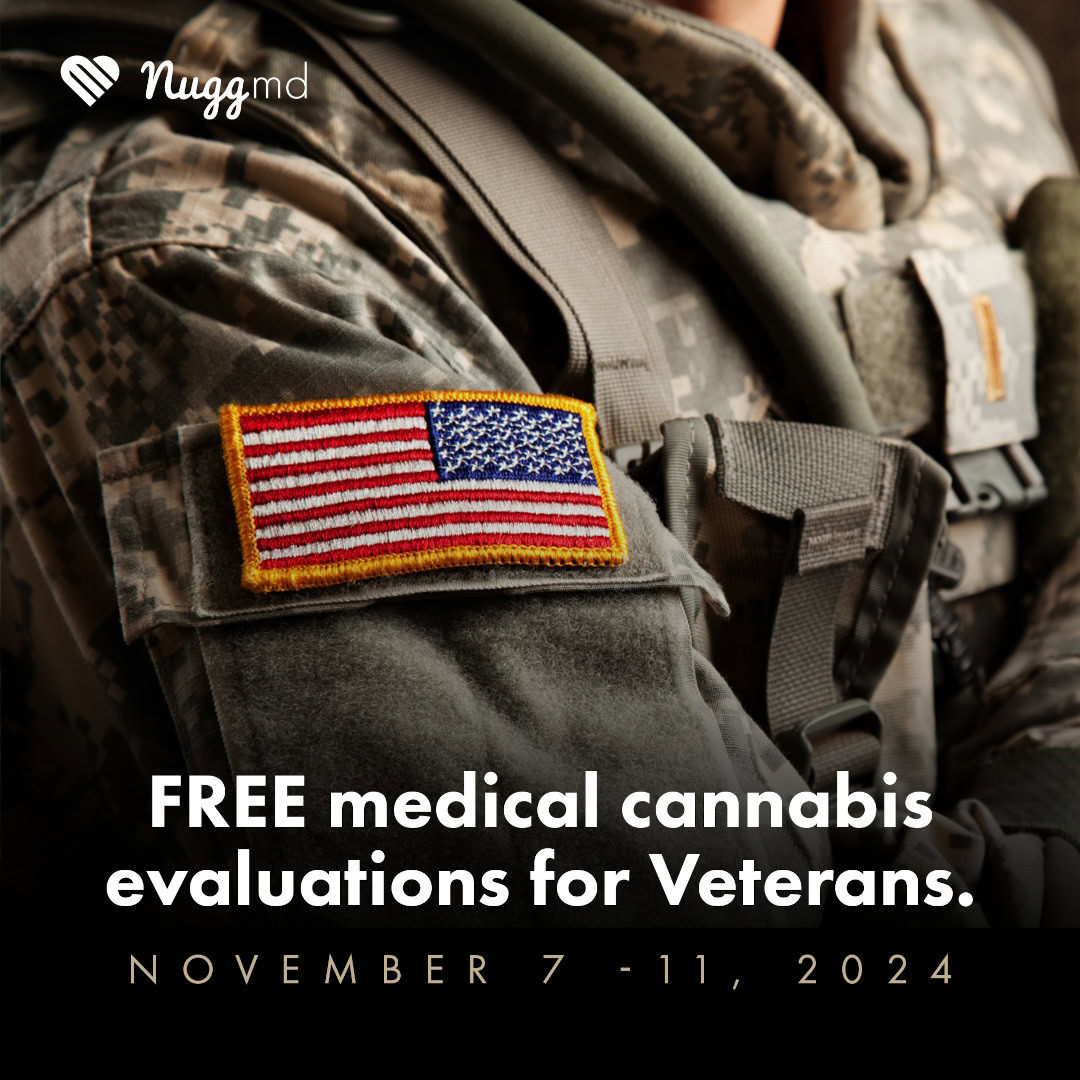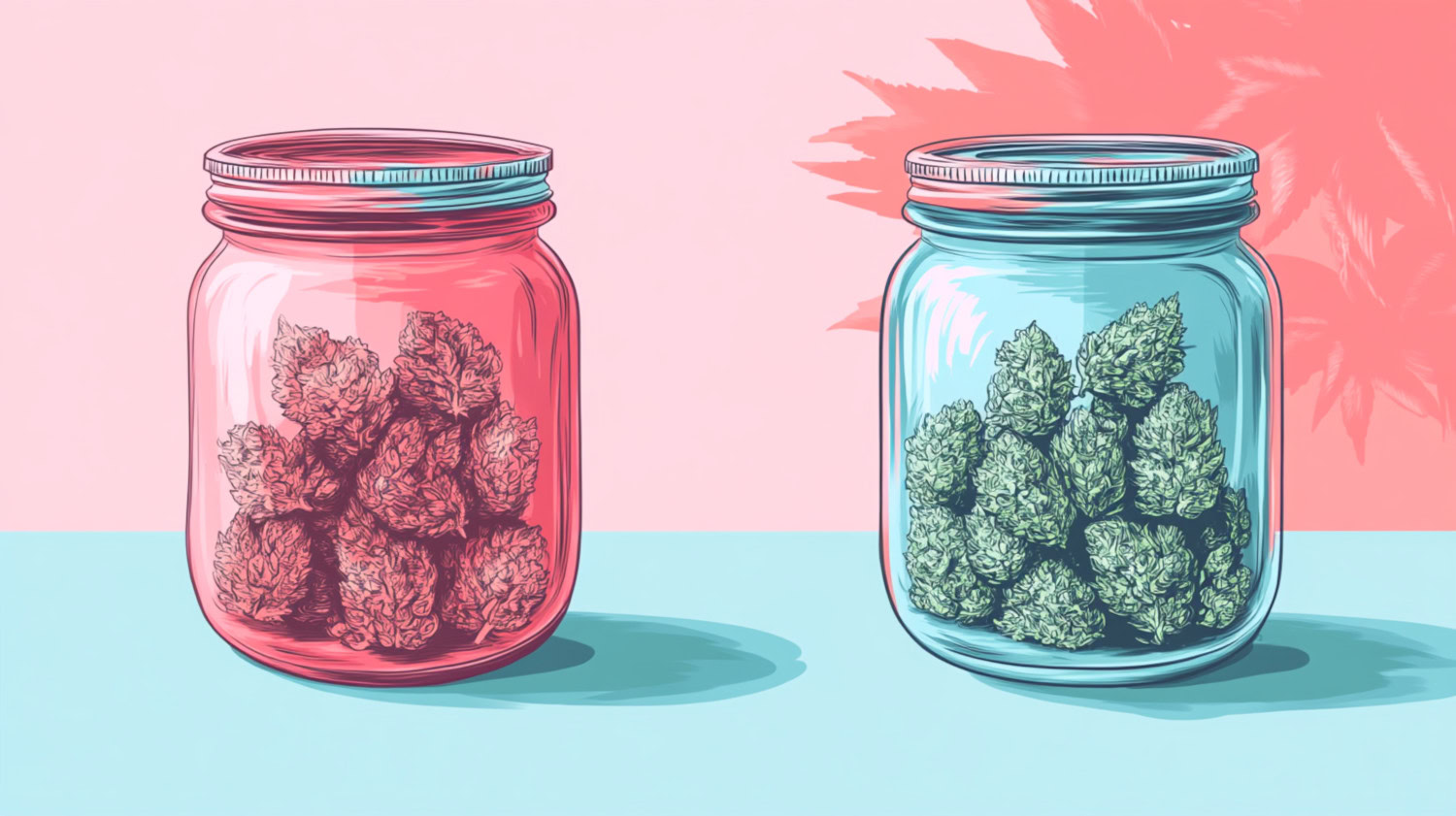More than 30% of veterans struggle with chronic pain, a rate significantly higher than that of the general population's 20%. Their pain is often linked to their military service, including musculoskeletal disorders, injuries, and life-threatening psychological conditions like severe depression and PTSD. And according to VA data, less than half of veterans receive the mental health treatment they need.
Millions of Americans now use cannabis for these and other disorders, leading to reports of effective relief and a significant decrease in their use of pharmaceuticals. In a study of over 1100 participants, 80% of cannabis users reported substituting cannabis for opioids.1 Analysts estimate that if the remaining illegal states were to enact legislation to legalize cannabis, pharmaceutical sales – and patient reliance on higher cost, potentially addictive medication – could drop by 11%.2
A study from 2021 reported that 11.9% of veterans used cannabis within the last six months. For many patients, especially veterans, cannabis is improving lives. But it’s estimated that only 1.5% of veterans have a medical cannabis card.3
VA Barriers to Treatment with Medicinal Cannabis
For the past decades, activists have been fiercely advocating for cannabis treatments to be made available to veterans who've been struggling with serious health and psychological problems. We've even seen some progress, but veterans are still struggling with the negative consequences of admitting to medical cannabis use in the VA system.
The VA announced that they would no longer deny benefits because of cannabis use. But in the same announcement they also stated that cannabis use information will be used for the treatment of cannabis use disorder, not to guide or assist medical use in their patients. There's no acknowledgment that the patient may need the cannabis for medical treatment, and herein lies the problem. Veterans are using medicinal cannabis to treat serious conditions, many with great success, but they're doing it without any partnership from their VA physicians.
Physician Support for Medical Cannabis Use Is a Matter of Safety
Cannabis can have serious interactions with a host of psychiatric and other medications. Medical care teams need to know of cannabis use, approach it with a reasonable attitude, and responsibly assess its medical potential in the patient. Likewise, consumers need to know if cannabis is safe and effective for their unique needs. They deserve access to qualified guidance on the products and dosage that will best work for them, rather than assuming they can find the same relief with any product or dose off the shelf of their local dispensary.
But under current VA policy, it is automatically assumed that all medical users have cannabis use disorder. The VA's policy discourages veterans from engaging in candid conversations with their doctors about their medical cannabis use for fear of being labeled an addict instead of being given the opportunity to integrate cannabis with their other treatments.
Advocating for Veteran Cannabis Access
Advocating for veteran cannabis access is advocating for the best medical outcome for our veterans. It's standing up for open and candid communication between veterans and their physicians. It’s fostering a more holistic and personalized approach to treatment. Our veterans deserve this level of care.
Until the VA is ready to change its policies toward cannabis as medicine, veterans are forced to seek help for cannabis treatment outside of their usual network, spending their hard-earned dollars when their care should be completely free.
This is why NuggMD's physicians are proud to offer free cannabis evaluations to veterans and 25% off evaluations for spouses of veterans with proof of service from Nov 7 to Nov 11, 2024.

Veterans are advised to bring a complete medical history and list of all their current and past medications so NuggMD's practitioners can provide the best advice as to why cannabis is or isn't a potential option for their condition. Our customer service team is always happy to explain how the process works and help our veterans find the connections they need to take the next step on their path toward healing.
If you are a veteran in need of support or a physician looking for information to assess the medical potential of cannabis for your patients, there are many organizations who advocate for veterans' medical cannabis access. They can help with more than just cannabis access and are here to serve our veterans at every stage of their recovery.
And for those with the capacity to do so, please consider helping support these organizations as they stand up for our veterans in need.
For Help With Access/Free Products:
Weed for Warriors - California - https://www.wfwproject.org/
HeroGrown - https://herogrown.org/programs/
Santa Cruz Veterans Alliance - https://www.scva.us/about-us
Education/Advocacy/Med Card Assistance:
Veterans Initiative 22 - Maryland - https://www.veteransinitiative22.com/
Veterans Cannabis Project - www.vetscp.org
Veteran's Cannabis Coalition - https://www.veteranscannacoalition.org/
Operation 1620 - https://balancedveterans.org/operation-1620/
Veterans Alliance for Holistic Alternatives - https://www.vahahealth.com/
Veterans Cannabis Group - https://veteranscannabisgroup.com/
Minnesota Veterans for Cannabis - www.mnvets4can.com
If you have a veteran's organization that you would like to add to this list, please reach out to us at support@nuggmd.com and we'll be happy to add your information.
References
- Boehnke KF, Scott JR, Litinas E, Sisley S, Williams DA, Clauw DJ. Pills to Pot: Observational Analyses of Cannabis Substitution Among Medical Cannabis Users With Chronic Pain. The Journal of Pain. 2019;20(7):830-841. doi:https://doi.org/10.1016/j.jpain.2019.01.010 ↩︎
- Bednarek Z, Doremus JM, Stith SS. U.S. cannabis laws projected to cost generic and brand pharmaceutical firms billions. PLoS One. 2022;17(8):e0272492. Published 2022 Aug 31. doi:10.1371/journal.pone.0272492 ↩︎
- Hill ML, Loflin M, Nichter B, Norman SB, Pietrzak RH. Prevalence of cannabis use, disorder, and medical card possession in U.S. military veterans: Results from the 2019–2020 National Health and Resilience in Veterans Study. Addictive Behaviors. 2021;120:106963-106963. doi:https://doi.org/10.1016/j.addbeh.2021.106963 ↩︎
The information in this article and any included images or charts are for educational purposes only. This information is neither a substitute for, nor does it replace, professional legal advice or medical advice, diagnosis, or treatment. If you have any concerns or questions about laws, regulations, or your health, you should always consult with an attorney, physician or other licensed professional.




